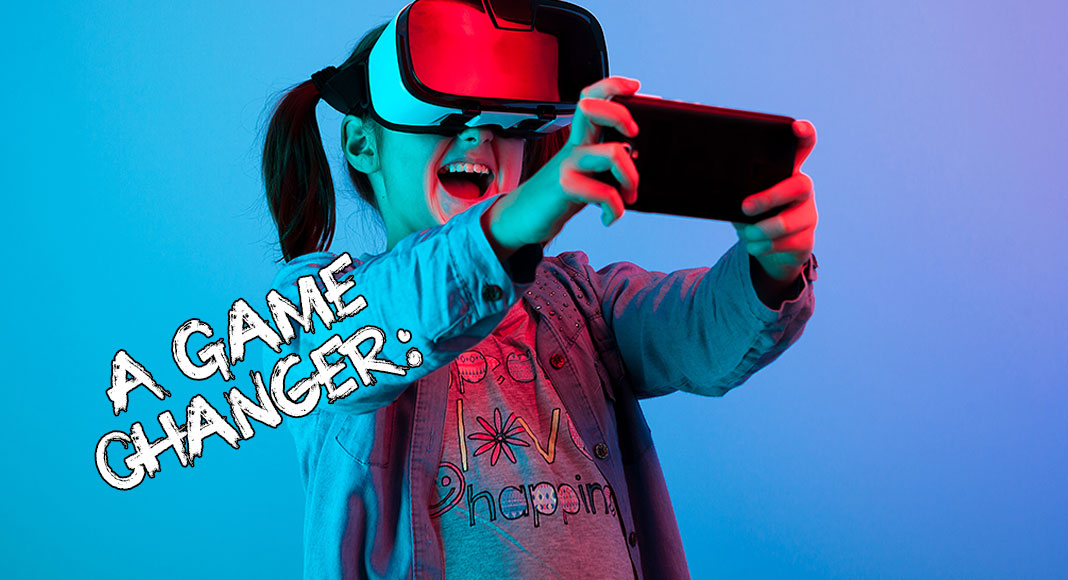
Mega Doctor News
By Children’s Hospital Los Angeles
Newswise — It isn’t a matter of one needle puncture. Many children coming through the doors of Children’s Hospital Los Angeles are seen for chronic conditions and often require frequent visits. Painful procedures—like a blood draw or catheter placement—can cause anxiety and fear in patients. Now, a study published in JAMA Network Open shows that virtual reality can decrease pain and anxiety in children undergoing intravenous (IV) catheter placement.
For nearly two decades, Jeffrey I. Gold, PhD, an investigator at The Saban Research Institute of Children’s Hospital Los Angeles, has been investigating the use of virtual reality (VR) as a technique to help children undergoing painful medical procedures. His research shows that the technology can have powerful effects. VR works so well that Children’s Hospital Los Angeles now offers it routinely for blood draws.
“Some patients don’t even realize that their blood is being drawn,” says Dr. Gold, who is also a Professor of Clinical Anesthesiology, Pediatrics, and Psychiatry & Behavioral Sciences at The Keck School of Medicine of USC. “Compare that to a child who is panicking and screaming, and it’s a no-brainer. We want kids to feel safe.”
In his recent publication, Dr. Gold’s team reports the results of a study to test whether VR could prevent pain and distress for patients undergoing peripheral intravenous catheter (PIVC) placement. The game is simple but requires focus and participation. Patients in one group used VR throughout the procedure, while those in another group received standard of care, which includes simple distraction techniques and the use of a numbing cream. The patients who used VR reported significantly lower levels of pain and anxiety.
“We can actually reduce pain without the use of a medication,” says Dr. Gold. “The mind is incredibly powerful at shifting focus and actually preventing pain from being registered. If we can tap into that, we can make the experience much better for our kids.”
But the story is bigger than that.
This is one of the first studies to analyze the effects of VR not only from the patient perspective, but also from that of the clinician and the patient’s family or caregivers. All three of these groups reported a more positive experience with the use of VR. Dr. Gold calls this triangulation of data—gathering information from three perspectives in order to improve patient experience.
“We started this to mitigate pain and overall distress in children. But caregivers and healthcare providers are also reporting improved outcomes,” adds Dr. Gold, “effectively treating the patient clearly has a ripple effect.”
Consider a typical scenario in which a child has a chronic illness and must routinely receive PIVC placement. A patient experiencing anxiety about her procedure may tense up, making it more difficult for the clinician to find a vein and insert the catheter. If multiple attempts are necessary, a child’s fear may amplify, causing a snowball effect, which in turn may impact medical adherence and ultimately long-term health outcomes.
If, on the other hand, the patient plays a virtual game while undergoing the procedure, she may relax and experience less pain, improving the overall experience for the child, the family, and the healthcare provider.
“Stress actually causes veins to constrict,” says Dr. Gold, “but you don’t need to know the physiology to know that it’s better to have a relaxed kid.”
The ripple effect goes further. A child’s experience during a visit sets the tone for future visits. If the experience feels traumatic, the child and family may be less likely to adhere with scheduled visits or may feel more stressed coming back to the hospital. “We don’t want a child’s healthcare experience to be another adverse childhood experience,” says Gold. Adverse childhood experiences, also called ACEs, can lead to poor health outcomes.
“We care about the healthcare experience that children have,” says Dr. Gold. “By reducing fear associated with routine procedures, we prepare the child to begin treatment with a more positive outlook, and this can affect their health for a lifetime.”









